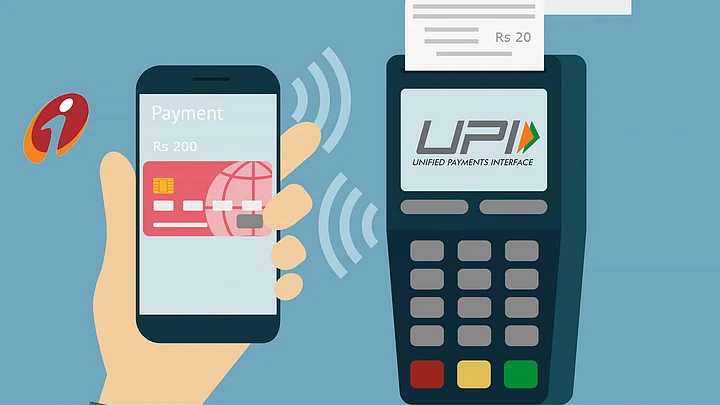"If you don't have cash, it's not a problem. Please transfer the money through UPI." This is what Shankarlal Kumavat, a vegetable seller, has been telling his customers since the pandemic started.
“Most of the customers, prefer to make payments via UPI. I personally feel that UPI is better because giving cash/loose change to customers only makes it difficult for me,’’ he told The Quint.
Another vendor, Sandip Rajan, a 42-year-old tea-seller from Pune, said that 90 percent of his customers send payments via UPI.
The National Payment Corporation of India (NPCI) said that it clocked a record of 2.8 billion transactions via UPI, worth Rs 5.47 lakh crores in June.
Unified Payment Interface (UPI) was launched in India in a bid to clear the black economy and enable digitalisation. But, now it seems that Indians are preferring UPI over any other payment methods.
'Easy, Reliable and Free'
Sai Pankhuri, 24, an engineer by profession who works in Delhi, narrates how he has not made any card transaction in the last one year.
"It has been more than a year that i have not made any card transactions, this is because mobile-based UPI payments are extremely reliable. No matter where I step out, almost every other shop or restaurant has UPI. The technology is faster, it is contactless and hassle-free."
Moreover, data revealed by NPCI shows that the average transaction size through UPI is Rs 2,000 (approx). This means Indians do not use UPI only for small payments such as buying vegetable or transferring money to friends. Rather, UPI is now being used for commercial purposes as well.
UPI vs Card Payments
There is no doubt that UPI in India has become a threat to major card payment solution providers like Visa and Mastercard.
According to RBI, the volume and value of card transactions in the country in April stood at 15.8 crores and Rs 59,150 crores respectively.
Meanwhile, NPCI reported 119.2 crores UPI transactions worth Rs 81,836 crore in April, indicating that UPI has surpassed credit /debit card transactions both by value and volume.
It is worth noting that UPI payments are not only limited to metro and tier 2 cities. It is gaining significant traction in the rural parts of India as well.
PhonePe Continues to Dominate UPI Space
PhonePe continues to dominate the UPI app ecosystem in India by expanding its market share to 46.04 percent in June, according to the data released by NPCI.
The data revealed by NPCI shows that 1,292.71 million transactions worth Rs. 2,62,565.88 crores took place on PhonePe in June.
In contrast, Google Pay saw 972.26 million transactions of worth Rs 2,07,287.73 crores, making it the second most preferable platform for UPI based payments.
UPI vs Card Payment: Which is Better?
Soumya Nair, 31, a Bangalore based entrepreneur told The Quint that UPI is way better than credit/debit cards when it comes to ease of transactions.
"In the case of a credit or a debit card, details like card number, CVV, card expiry date, etc, has to be entered before making any transaction. The enormous details make the transaction cumbersome," he added.
UPI transactions take place upon entering VPA (Virtual Payment Address) of the payee, which is also commonly called as UPI ID. Transactions happen in a hassle-free and simple manner. There is no complexity like entering the card details.
Vaishali Mistry, a hommaker in Pune, said that one needs to have a good credit score to avail a credit card.
"UPI does not come with any compliance formality. Irrespective of your credit score, you can use UPI to make transactions simply by KYC verification and registering your phone number," she adds.
(At The Quint, we question everything. Play an active role in shaping our journalism by becoming a member today.)
